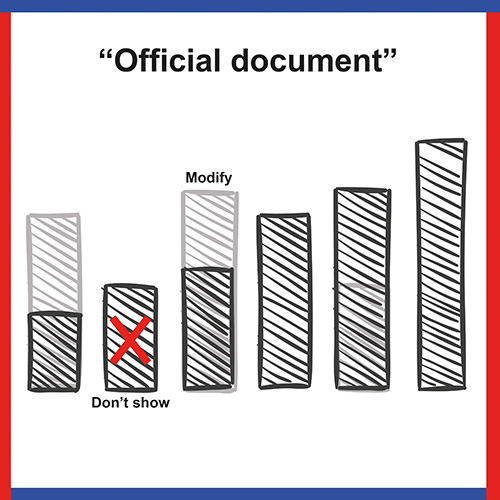
Government data isn’t abstract. It’s hurricane warnings, unemployment rates, census counts and public health reports. If officials are punished for reporting uncomfortable realities, numbers become a form of political theater rather than a public service.
If pressure is put on government officials to toe the party line instead of reporting the facts as they stand, it could have drastic repercussions not only on the government but also on the overall safety of citizens. Data is one of the most important tools of the modern day. When reliable, it helps alert officials to developing problems and facilitates solutions.
Say you were a weather researcher off the coast of Florida. You notice a year-over-year increase in ocean temperature, which decreases the fish population. That means a lower food supply for coastal regions and the data predicts that in five years, there will be no fish left. You take this report to your boss. Instead of addressing the problem, you’re told the data reflects climate change and you are not allowed to report it. The report is deleted. You are warned that if you mention it again, you’ll be fired.
This puts the researcher in a predicament: Do they risk their job, livelihood and ability to support their family to blow the whistle, or do they bury their head and keep producing the data that is expected? Often, this leads to fear-driven manipulation — employees self-censoring, reports being buried, delayed or reframed to fit the administration’s narrative.
That scenario might sound extreme, but we don’t have to imagine it. We’ve already seen what happens when politics overrides data.
The broader implications of this becoming commonplace are dire. If government agencies report altered data to fit a political narrative, real issues get overlooked, ignored or swept under the rug, which can lead to disaster. Take the COVID-19 pandemic, a global health crisis that quickly became a political issue across the United States.
During this time, some states actively ignored, buried, or misinterpreted COVID-19 data to maintain political narratives over the protection of their people. Arizona ordered university scientists to pause publication of COVID-19 data. Rebekah Jones, a data scientist with the Florida Department of Health, says she was fired for refusing to manipulate numbers to support the state’s reopening. Other states ignored entire populations, such as inmates or nursing home residents, in their infection counts.
On the federal level, scientists and officials were directly told not to report COVID-related information. The National Oceanic and Atmospheric Administration forbade staff from using the words “pandemic” or “COVID-19” in public-facing documents without approval from leadership. These choices to downplay the severity of the pandemic led to states reopening sooner than they should have, prolonging the crisis in many areas.
COVID wasn’t the first time politics bent the numbers. In 2020, pressure mounted around the U.S. Census, with accusations that the administration tried to alter population counts to affect congressional districts. Similarly, debates over how unemployment is measured — which groups get counted and which do not — show how easily data can be framed to tell a story that benefits those in power rather than reflecting the reality that people live every day.
But decreased public safety is only one consequence of allowing data manipulation to reinforce state narratives. It creates an environment where citizens cannot trust their government, chipping away at the foundation of the social contract of government. It allows the truth to be twisted into propaganda that those in power can use to manipulate the public into supporting policies and actions that go against their interests.
Safeguarding the integrity of data doesn’t require reinventing government. It means protecting scientists and statisticians from political retribution, enforcing whistleblower protections and ensuring raw data is publicly accessible. When the public can see the numbers for themselves, data becomes harder to obfuscate. Just as important, agencies must be led by professionals chosen for expertise, not political loyalty. When officials can do their jobs without fear, the numbers stay honest — even when the truth is inconvenient.
In a democracy, truth is not optional. If officials fear losing their jobs for telling the truth, then the numbers we rely on will stop being reality and start being theater. And when that happens, the costs aren’t measured in statistics — they’re measured in lives.



























